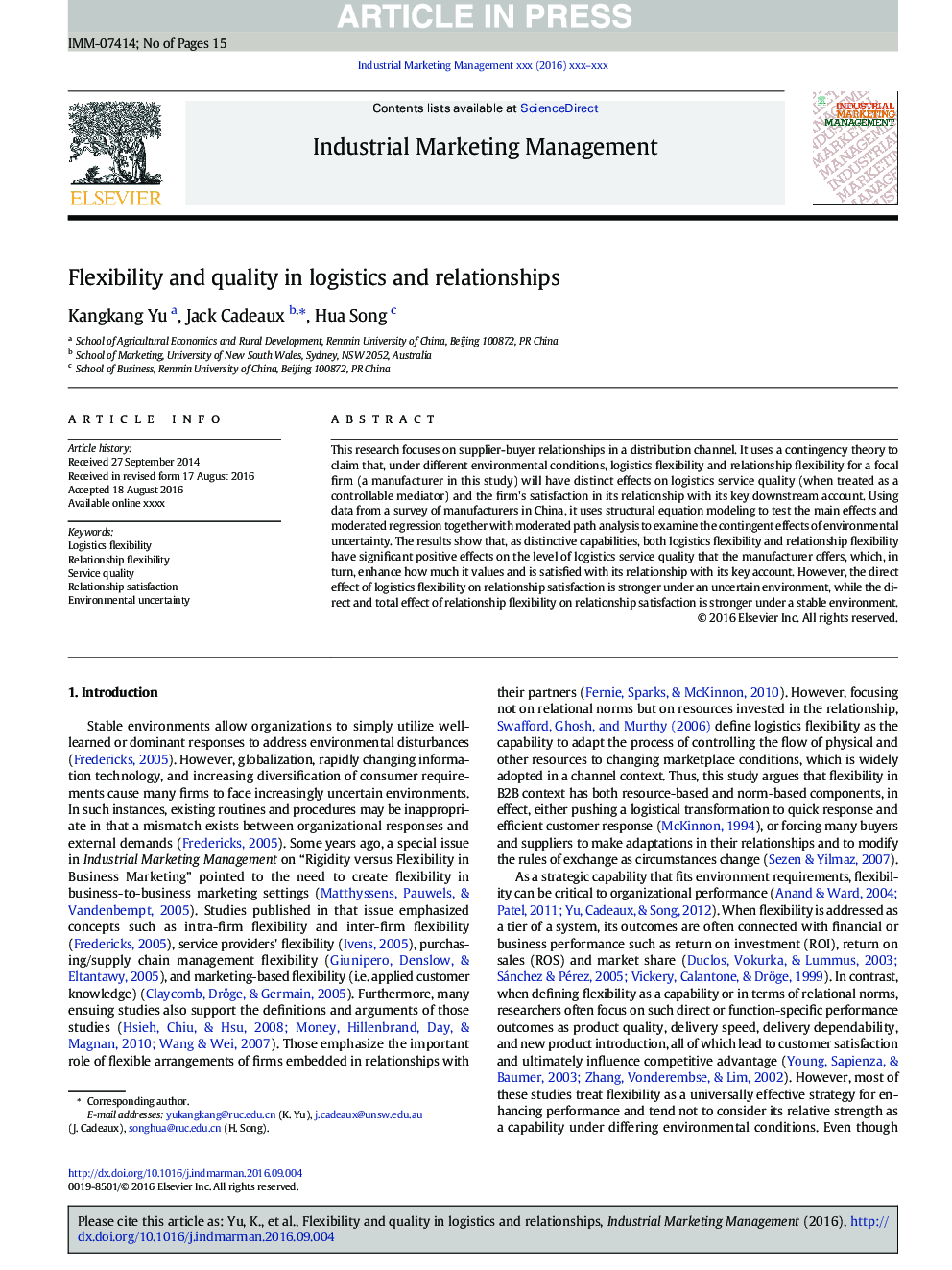| Article ID | Journal | Published Year | Pages | File Type |
|---|---|---|---|---|
| 5111196 | Industrial Marketing Management | 2017 | 15 Pages |
Abstract
This research focuses on supplier-buyer relationships in a distribution channel. It uses a contingency theory to claim that, under different environmental conditions, logistics flexibility and relationship flexibility for a focal firm (a manufacturer in this study) will have distinct effects on logistics service quality (when treated as a controllable mediator) and the firm's satisfaction in its relationship with its key downstream account. Using data from a survey of manufacturers in China, it uses structural equation modeling to test the main effects and moderated regression together with moderated path analysis to examine the contingent effects of environmental uncertainty. The results show that, as distinctive capabilities, both logistics flexibility and relationship flexibility have significant positive effects on the level of logistics service quality that the manufacturer offers, which, in turn, enhance how much it values and is satisfied with its relationship with its key account. However, the direct effect of logistics flexibility on relationship satisfaction is stronger under an uncertain environment, while the direct and total effect of relationship flexibility on relationship satisfaction is stronger under a stable environment.
Related Topics
Social Sciences and Humanities
Business, Management and Accounting
Marketing
Authors
Kangkang Yu, Jack Cadeaux, Hua Song,
